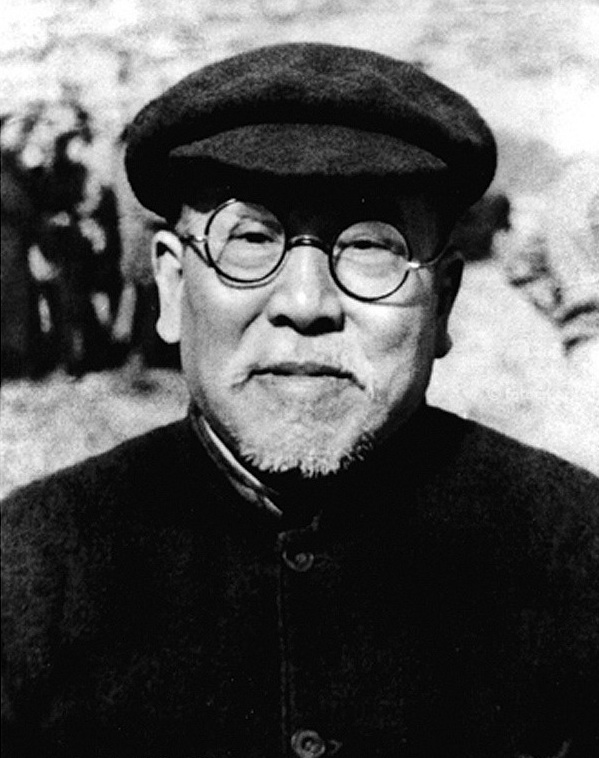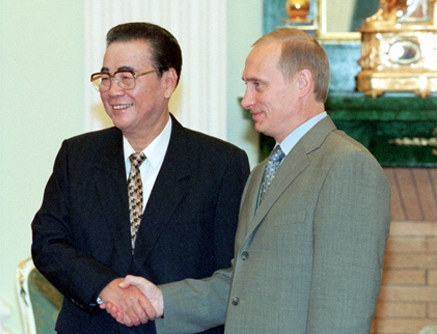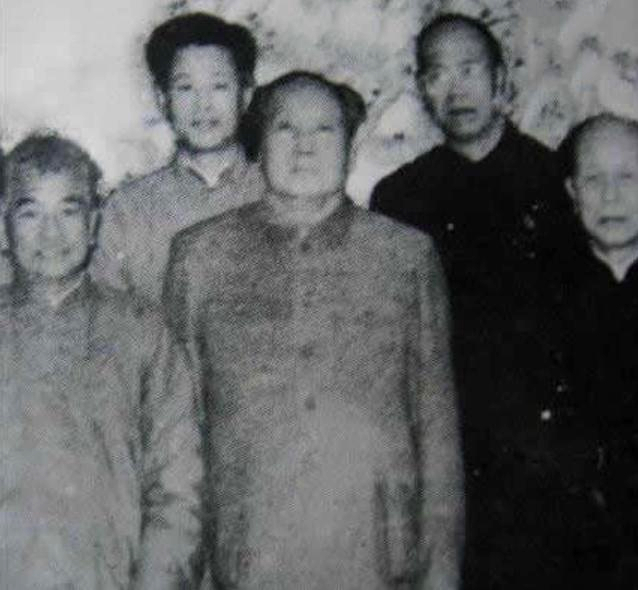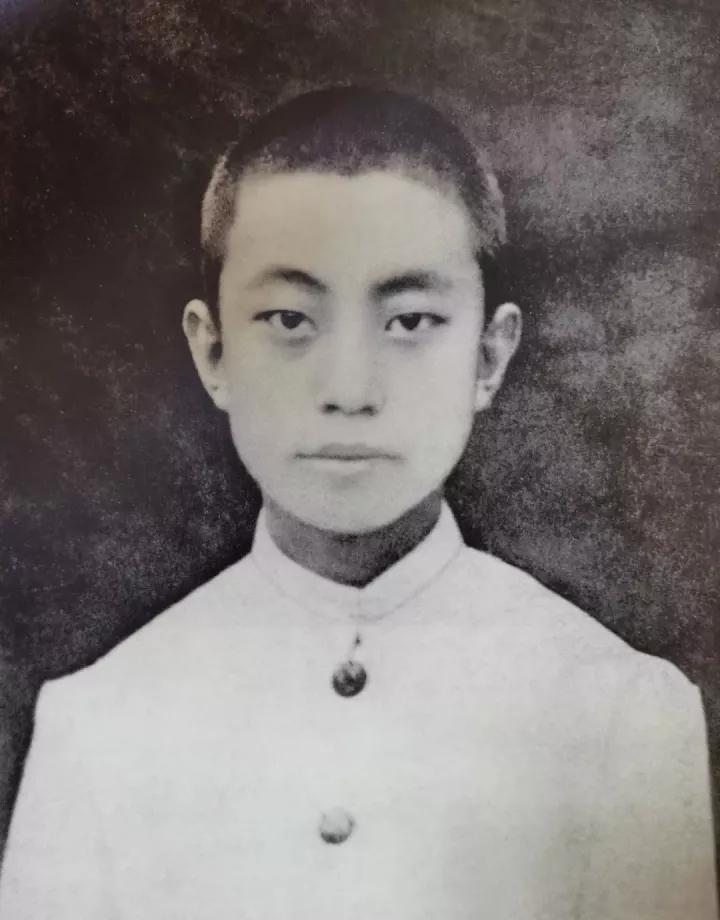|
Minister Of Civil Affairs
The minister of civil affairs of the People's Republic of China is the head of the Ministry of Civil Affairs of the China, People's Republic of China and a member of the State Council of China, State Council. Within the State Council, the position is tenth in Order of precedence in China, order of precedence. The minister is responsible for leading the ministry, presiding over its meetings, and signing important documents related to the ministry. Officially, the minister is nominated by the Premier of China, premier of the State Council, who is then approved by the National People's Congress or its Standing Committee of the National People's Congress, Standing Committee and appointed by the President of China, president. The current minister is Lu Zhiyuan, who concurrently serves as the Communist Party Secretary of the Ministry. History The Ministry of the Interior of the Central People's Government was established on 1 October 1949, and Xie Juezai became the first minister on ... [...More Info...] [...Related Items...] OR: [Wikipedia] [Google] [Baidu] |
National Emblem Of China
The National Emblem of the People's Republic of China is a national symbol of the China, People's Republic of China and contains in a red circle a representation of Tiananmen, Tiananmen Gate, the entrance gate to the Forbidden City chinese palace, imperial palace complex of the Ming Dynasty, Ming and Qing Dynasty, Qing Dynasties, where Mao Zedong declared the foundation of the People's Republic of China (PRC) in 1949. Above this representation are the five stars found on the flag of China, national flag. The largest star represents the Chinese Communist Party (CCP), while the four smaller stars represent the four revolutionary social classes as defined in Maoism. The emblem is described as being "composed of patterns of the national flag":Description of the National Emblem from Chinese Go ... [...More Info...] [...Related Items...] OR: [Wikipedia] [Google] [Baidu] |
Zhou Enlai
Zhou Enlai ( zh, s=周恩来, p=Zhōu Ēnlái, w=Chou1 Ên1-lai2; 5 March 1898 – 8 January 1976) was a Chinese statesman, diplomat, and revolutionary who served as the first Premier of the People's Republic of China from September 1954 until Death of Zhou Enlai, his death in January 1976. Zhou served under Chairman Mao Zedong and aided the Chinese Communist Party, Communist Party in rising to power, later helping consolidate its control, form its Foreign policy of China, foreign policy, and develop the Economy of China, Chinese economy. As a diplomat, Zhou served as the Chinese Foreign Minister of the People's Republic of China, foreign minister from 1949 to 1958. Advocating peaceful coexistence with Western Bloc, the West after the Korean War, he participated in the 1954 Geneva Conference and the 1955 Bandung Conference and helped orchestrate 1972 Nixon visit to China, Richard Nixon's 1972 visit to China. He helped devise policies regarding disputes with the United States, ... [...More Info...] [...Related Items...] OR: [Wikipedia] [Google] [Baidu] |
Doje Cering
Doje Cering (; ; born November 1939) is a Chinese politician of Tibetan ethnicity who served as chairperson of the National People's Congress Ethnic Affairs Committee from 2003 to 2008, minister of Civil Affairs from 1993 to 2003, and Chairman of Tibet from 1985 to 1990. He was a member of the 12th CCP Central Commission for Discipline Inspection. He was a member of the 13th, 14th, 15th and 16th Central Committee of the Chinese Communist Party. He was a member of the Standing Committee of the 10th National People's Congress. Biography Doje Cering was born in Xiahe County, Gansu, in November 1939. He entered the workforce in August 1955, and joined the Chinese Communist Party in October 1960. During the Cultural Revolution, he suffered political persecution. He was magistrate of Gyaca County, first party secretary of Shannan, and first party secretary of Shigatse. In 1983, he was promoted to become vice chairman of Tibet Autonomous Region The Tibet Autonomous Region ... [...More Info...] [...Related Items...] OR: [Wikipedia] [Google] [Baidu] |
People's Daily
The ''People's Daily'' ( zh, s=人民日报, p=Rénmín Rìbào) is the official newspaper of the Central Committee of the Chinese Communist Party (CCP). It provides direct information on the policies and viewpoints of the CCP in multiple languages. It is the largest newspaper in the China, People's Republic of China (PRC). History The paper was established on 15 June 1948 and was published in Pingshan County, Hebei. It was formed from the merger of the ''Jin-Cha-Ji Daily'' and the newspapers of the Jin-Ji-Lu-Yu base area. On 15 March 1949, its office was moved to Beijing, and the original People's Daily Beijing edition was renamed ''Beijing Liberation Daily''. The newspaper ceased publication on 31 July 1949, with a total of 406 issues published. Since the newspaper was the official newspaper of the North China Central Bureau of the CCP, it was historically known as the ''North China People's Daily'' or the ''People's Daily North China Edition''. At the same time, in order ... [...More Info...] [...Related Items...] OR: [Wikipedia] [Google] [Baidu] |
Li Peng
Li Peng (; 20 October 1928 – 22 July 2019) was a Chinese politician who served as the 4th premier of China from 1987 to 1998, and as the chairman of the Standing Committee of the National People's Congress, China's top legislative body, from 1998 to 2003. For much of the 1990s Li was ranked second in the Chinese Communist Party (CCP) hierarchy behind then CCP General Secretary Jiang Zemin. He retained his seat on the CCP Politburo Standing Committee until his retirement in 2002. Li was the son of an early Communist revolutionary, Li Shuoxun, who was executed by the Kuomintang. After meeting Zhou Enlai in Sichuan, Li was raised by Zhou and his wife, Deng Yingchao. Li trained to be an engineer in the Soviet Union and worked at an important national power company after returning to China. He escaped the political turmoil of the 1950s, 1960s, and 1970s due to his political connections and his employment in the company. After Deng Xiaoping became China's leader in the late 1970 ... [...More Info...] [...Related Items...] OR: [Wikipedia] [Google] [Baidu] |
Cui Naifu
Cui Naifu (; 8 October 1928 – 4 April 2023) was a Chinese politician who served as minister of civil affairs from 1982 to 1993. Cui was a member of the 12th, 13th, and 14th Central Committee of the Chinese Communist Party. Biography Cui was born in Changping County (now Changping District of Beijing), Hebei, on 8 October 1928. He studied at the and North China Revolutionary University. He joined the Chinese Communist Party (CCP) in 1948. After founding of the Communist State in 1949, he successively served as secretary for the Party Chief of the CCP Shanxi Provincial Committee, director of the National Commission for Sales Cooperation, head of the Publicity Department of the CCP Lanzhou University Committee, and deputy party secretary In modern Chinese politics, a Deputy Party Committee Secretary (; also translated as Deputy Party Secretary, deputy party chief, vice party chief) serves as the lieutenant to the Chinese Communist Party Committee Secretary, and thus th ... [...More Info...] [...Related Items...] OR: [Wikipedia] [Google] [Baidu] |
Portrait Gray
A portrait is a painting, photograph, sculpture, or other artistic representation of a person, in which the face is always predominant. In arts, a portrait may be represented as half body and even full body. If the subject in full body better represents personality and mood, this type of presentation may be chosen. The intent is to display the likeness, personality, and even the mood of the person. For this reason, in photography a portrait is generally not a snapshot, but a composed image of a person in a still position. A portrait often shows a person looking directly at the painter or photographer, to most successfully engage the subject with the viewer, but portrait may be represented as a profile (from aside) and 3/4. History Prehistorical portraiture Plastered human skulls were reconstructed human skulls that were made in the ancient Levant between 9000 and 6000 BC in the Pre-Pottery Neolithic B period. They represent some of the oldest forms of art in the Middle East ... [...More Info...] [...Related Items...] OR: [Wikipedia] [Google] [Baidu] |
Zhao Ziyang
Zhao Ziyang; pronounced (17 October 1919 – 17 January 2005) was a Chinese politician. He served as the 3rd premier of China from 1980 to 1987, as vice chairman of the Chinese Communist Party (CCP) from 1981 to 1982, and as the CCP general secretary from 1987 to 1989. He was in charge of the political reforms in China from 1986, but lost power for his support of the 1989 Tian'anmen Square protests. Zhao joined the Chinese Communist Party (CCP) in February 1938. During the Second Sino-Japanese War, he served as the chief officer of CCP Hua County Committee, Director of the Organization Department of the CCP Yubei prefecture Party Committee, Secretary of the CCP Hebei-Shandong-Henan Border Region Prefecture Party Committee and Political Commissar of the 4th Military Division of the Hebei-Shandong-Henan Military Region. During the Chinese Civil War of 1945–1949, Zhao served as the Deputy Political Commissar of Tongbai Military Region, Secretary of the CCP Nanyang Prefectur ... [...More Info...] [...Related Items...] OR: [Wikipedia] [Google] [Baidu] |
Hua Guofeng
Hua Guofeng (born Su Zhu (); 16 February 1921 – 20 August 2008) was a Chinese politician who served as chairman of the Chinese Communist Party and the 2nd premier of China. The designated successor of Mao Zedong, Hua held the top offices of the government, party, and the military after the deaths of Mao and Death of Zhou Enlai, Premier Zhou Enlai, but was gradually forced out of supreme power by a coalition of party leaders between December 1978 and June 1981, and subsequently retreated from the political limelight, though still remaining a member of the Central Committee of the Chinese Communist Party, Central Committee until 2002. Born and raised in Jiaocheng County, Jiaocheng, Hua joined the Chinese Communist Party (CCP) in 1938, seeing action in both the Second Sino–Japanese War and the Chinese Civil War as a guerrilla fighter.Ye Yonglie, 邓小平改变中国1978:中国命运大转折 (Deng Xiaoping Changed China-1978: China's Destiny Turned, pp. 108-141, Sichuan Peop ... [...More Info...] [...Related Items...] OR: [Wikipedia] [Google] [Baidu] |
Vice Chairperson Of The Chinese People's Political Consultative Conference
The vice chairpersons of the National Committee of the Chinese People's Political Consultative Conference (CPPCC) are deputies to the chairman of the Chinese People's Political Consultative Conference. The official responsibility of the vice chairpersons is to assist the CPPCC chairman with the leadership of the CPPCC Standing Committee. The vice chairpersons are officially nominated within the CPPCC National Committee and approved by a plenary session of the National Committee. The vice chairpersons are members of the Standing Committee of the National Committee, which handles the regular affairs of the body, and members of the Chairperson's Council, which handles the day-to-day affairs of the Standing Committee. The head of the United Front Work Department (UFWD) of the Chinese Communist Party (CCP) has generally served as the first-ranking vice chairperson. The other vice chairpersons have generally included the president of the Chinese Academy of Social Sciences, for ... [...More Info...] [...Related Items...] OR: [Wikipedia] [Google] [Baidu] |
Cheng Zihua
Cheng Zihua (; June 20, 1905 – March 30, 1991) was a People's Republic of China politician and military general. Beijing Review He was born in , Province. He was the 1st Committee Secretary and governor of his home province. He was a delegate to the [...More Info...] [...Related Items...] OR: [Wikipedia] [Google] [Baidu] |
Central Committee Of The Chinese Communist Party
The Central Committee of the Chinese Communist Party, officially the Central Committee of the Communist Party of China, is the Central committee, highest organ when the National Congress of the Chinese Communist Party, national congress is not in session and is tasked with carrying out congress resolutions, directing all party work, and representing the Chinese Communist Party (CCP) externally. It is currently composed of 205 full members and 171 alternate members (see 20th Central Committee of the Chinese Communist Party, list). Members are nominally elected once every five years by the National Congress of the Chinese Communist Party. In practice, the selection process is done privately, usually through consultation of the CCP's Politburo of the Chinese Communist Party, Politburo and its corresponding Politburo Standing Committee of the Chinese Communist Party, Standing Committee. The Central Committee is, formally, the "party's highest organ of authority" when the National C ... [...More Info...] [...Related Items...] OR: [Wikipedia] [Google] [Baidu] |






